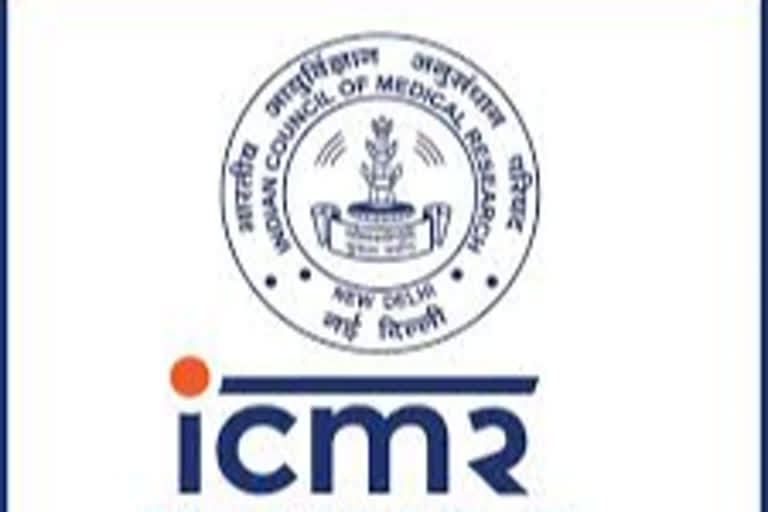New Delhi: A day after World Health Organisation (WHO) has put trials of hydroxy-chloroquine (HCQ) on hold, the Indian Council of Medical Research (ICMR) on Tuesday said that HCQ does not carry major side effects except for nausea, vomiting and palpitation occasionally.
"Hydroxy-chloroquine is an anti-malaria drug and hence we have advised that there is no harm, benefit may be there," said Dr Balram Bhargava, Director General of Indian Council of Medical Research.
Hydroxy-chloroquine was a candidate for WHO's solidarity trial for getting anti-COVID-19 drugs. Bhargava said that hydroxy-chloroquine is a popular drug and it could be important for the prevention of COVID-19 if taken as prophylaxis. "The medicine should be taken with food. People need to do at least one ECG after taking the medicine. And after taking two tablets in the first week, one tablet each should be taken for seven weeks. At the same time, PPEs should be used...We are coming with a study on the benefit of HCQ among frontline health workers very soon," informed Dr Bhargava.
He said that ICMR has started conducting at least 1.1 lakh Covid-19 tests every day in 612 laboratories across India. "States have been issued with guidelines for immediate testing of symptomatic migrant workers...indigenous manufacturers have been hand-held, they are delivering well," he added.
However, the Union Health Ministry has said that India's fatality rate is now 2.87 per cent, the lowest in the world. "Implementation of lockdown, social distancing, behavioural change are the major reasons for India's low fatality rate," said Lav Agarwal, joint secretary in the Health Ministry.
India on Tuesday recorded 6,535 new COVID cases taking the total number to 1,45,380. The total death toll reached 4,167 after 146 new death cases reported in the last 24 hours. "India has reported 10.7 cases per lakh population as compared to 69.9 cases per lakh population for the world, while the figures are promising, the fight against the Covdi-19 pandemic is not over," Agarwal said.
Also read:PM Modi chairs high-level meeting over Ladakh situation
With a total of 60,490 Covid-19 recovery cases, India's recovery rate touches 41.61 per cent."India's Covid-19 case fatality rate (death rate among confirmed cases) was 3.30 per cent on April 15. It has now come down to 2.87 per cent which is amongst the lowest in the world," said Agarwal. With 0.3 per cent, India's Covid-19 death per lakh population is also lowest in comparison to world's 4.5 Covid-19 death per lakh population, he said.
"We need to focus on prevention and early case detection, behaviour change for prevention of Covid-19 disease, use of masks-face cover in public places," said Agarwal. The Health Ministry earlier issued guidelines to states and UTs advising immediate testing for symptomatic and home quarantine for asymptomatic migrant workers. "Most states and UTs have been working with national tuberculosis elimination programme (NTEP) to deploy TrueNAT machine for Covid-19 testing," said Agarwal.
Meanwhile, the Union Health Ministry has asked all states and UTs to update the availability and consumption of anti-malaria drug hydroxy-chloroquine.
Earlier on Tuesday, union health secretary Preeti Sudan interacted with chief secretaries, health secretaries and MD (NHM) of five states namely Uttar Pradesh, Bihar, Jharkhand, Chhattisgarh and Madhya Pradesh that have been witnessing an upsurge in returning migrant workers. These states have been witnessing a surge in Covid-19 cases since the last three weeks as lockdown rules have been eased and interstate migration has been allowed.
The states were briefed on the individual case trajectory with respect to case fatality rate, doubling time, testing per million and confirmation percentage. Factors that need to be focused for effective content strategy were pointed out such as perimeter control, diligent house to house survey through special surveillance teams, testing, active contact tracing and effective clinical and effective clinical management were highlighted. "To meet the surge of incoming migrant workers, ASHAs and ANMs can be given additional incentives," states were suggested during the video conference meeting.
